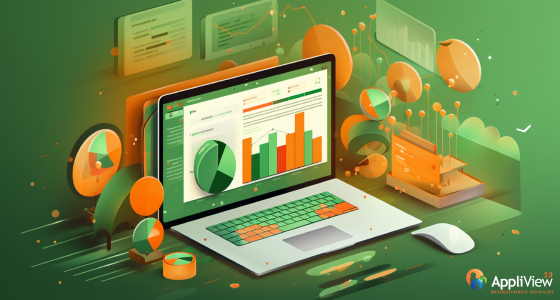From Chatbots to Virtual Assistants: The Future of HR Support
December 29, 2023

In today’s fast-paced business environment, HR support is incorporating chatbots and virtual assistants to streamline operations and improve employee experiences. Chatbots, powered by AI, provide efficient responses to HR-related inquiries, are available 24/7, and can analyze data for improvement. Virtual assistants, like Siri, Google Assistant, and Alexa, handle complex HR processes, provide natural voice and text interaction, and integrate seamlessly with HR software. Choosing the appropriate technology depends on the difficulty of tasks, scalability, budget, and user experience. The future of HR support is promising, with enhanced personalization, predictive analytics, and voice-activated HR.
From Chatbots to Virtual Assistants: The Future of HR Support
Human Resources (HR) support must remain ahead of the curve in today’s fast-paced business environment. Large and medium-sized businesses, as well as start-ups, are always looking for novel methods to streamline their HR operations and improve employee experiences. One of the most significant technological advancements in HR support is the incorporation of chatbots and virtual assistants. This article will examine the rise of chatbots and virtual assistants in human resources and assist you in selecting the appropriate technology for your requirements.
The Rise of Chatbots in Human Resources
Chatbots, often powered by Artificial Intelligence (AI), have acquired immense popularity in recent years. They are virtual assistants designed to interact with employees and provide prompt responses to HR-related inquiries. Here are some important advantages of using chatbots in human resources:
Effective Employee Questions
HR chatbots can efficiently handle common questions regarding leave balance, company policies, and benefits, allowing human resources professionals to focus on more complex duties.
Chatbots are accessible 24 hours a day, seven days a week, ensuring that employees can obtain answers to their queries at any time, which is crucial for global organizations.
Data Analytics

Chatbots are able to collect and analyze data on common HR inquiries, thereby assisting HR teams in identifying improvement areas.
IBM Watson Assistant and Oracle Digital Assistant are examples of chatbots utilized in human resources.
Evolution of Virtual Assistants
Virtual assistants are a step beyond chatbots. They are more sophisticated, powered by AI, and capable of handling a broader spectrum of HR tasks. Virtual assistants like Siri, Google Assistant, and Alexa have already become familiar in our daily lives, and now, similar technology is making its way into HR departments.
Using virtual assistants : Virtual assistants can manage complex HR processes such as interview scheduling, onboarding, and even providing personalized career advice.
Voice and Text Interaction : They provide a more natural and intuitive voice and text interaction, which makes it simpler for employees to access information.
Choosing the Appropriate Technology for Your HR Requirements
Consider the following factors when determining between chatbots and virtual assistants for your HR support:
Difficulty of HR Tasks :If the majority of your HR duties are routine and repetitious, a chatbot may suffice. However, for more complex and interactive tasks, a virtual assistant may be the better decision.
Scalability :Consider the development of your organization. Will your HR support technology scale along with your business?
Budget :While virtual assistants are more sophisticated, they also come at a higher cost. Consider your financial constraints and select a solution that fits within your budget.
User Experience :Consider the user-friendliness of the technology. Virtual assistants are typically more intuitive and offer a more satisfying user experience.
The Future of HR Support

HR Support’s Promising Future As technology continues to advance, HR support’s future appears promising. Here are a few trends and forecasts:
Enhanced Personalization : HR technology will become even more personalized, offering employee experiences that are uniquely tailored.
Predictive Analytics : AI will help HR professionals predict and address employee requirements more effectively.
Voice-Activated HR : Virtual assistants utilizing voice commands to conduct a variety of tasks will become an integral part of HR procedures.
Conclusion
In conclusion, the HR support landscape is rapidly evolving, and adopting the right technology can considerably improve HR processes, enhance employee experiences, and increase overall efficiency.
